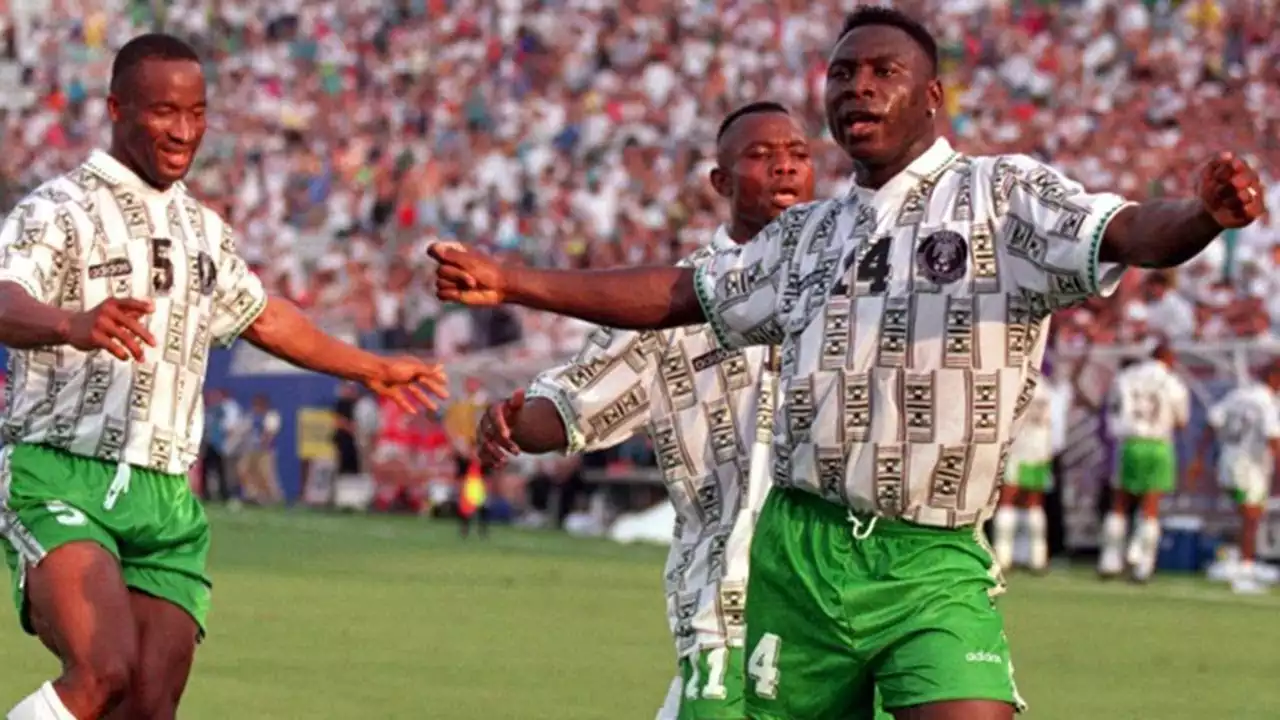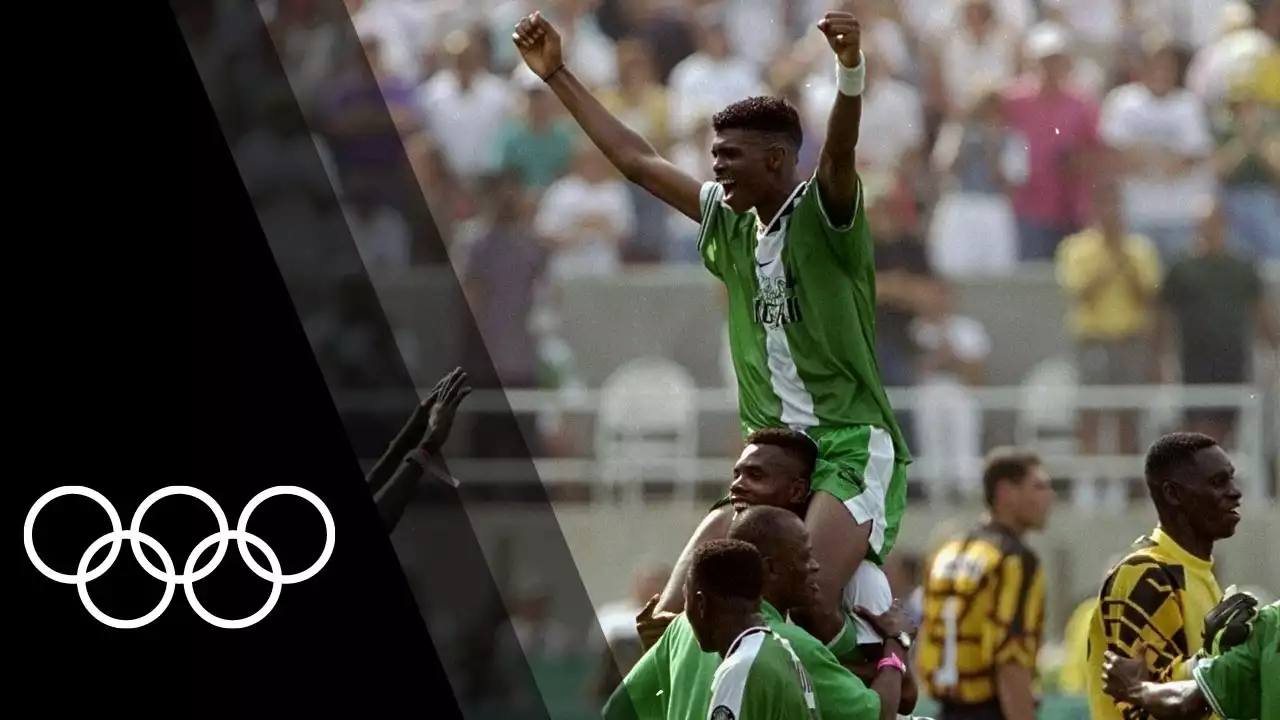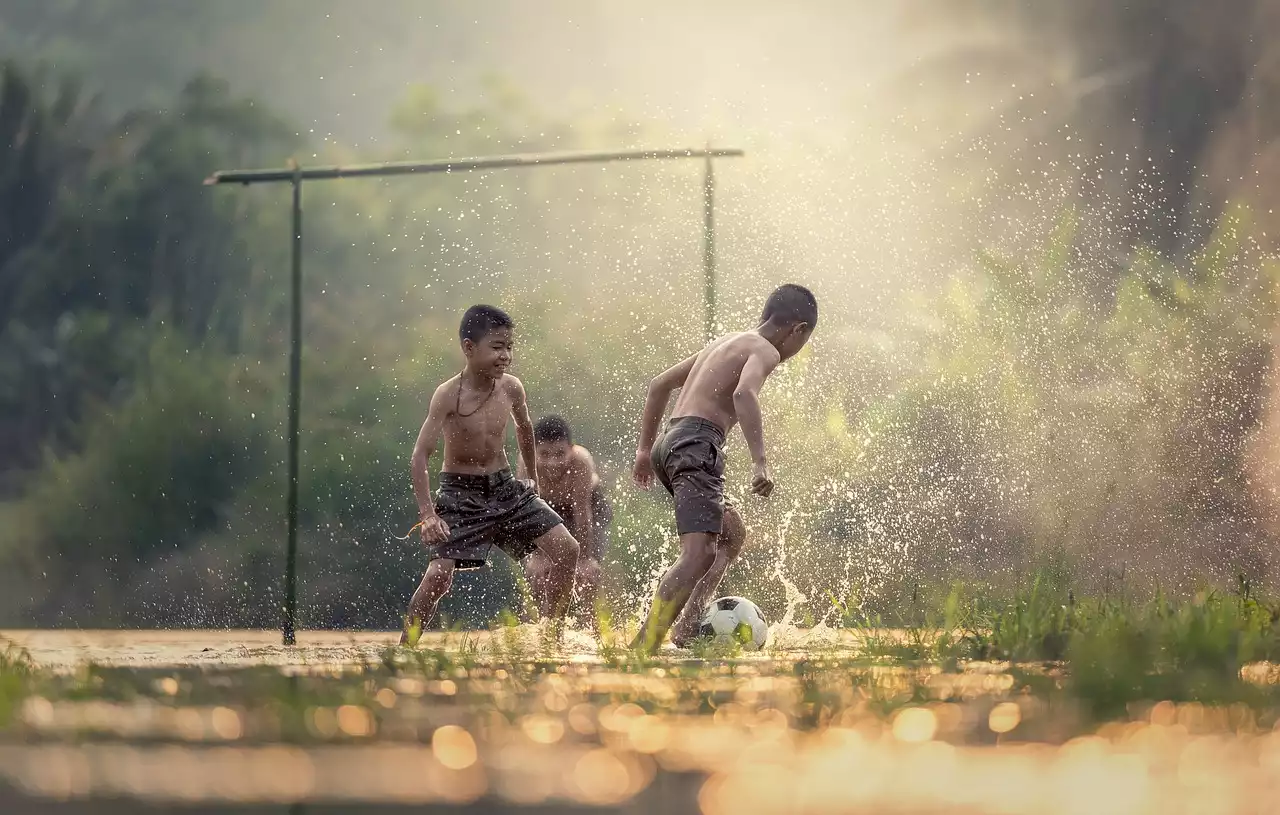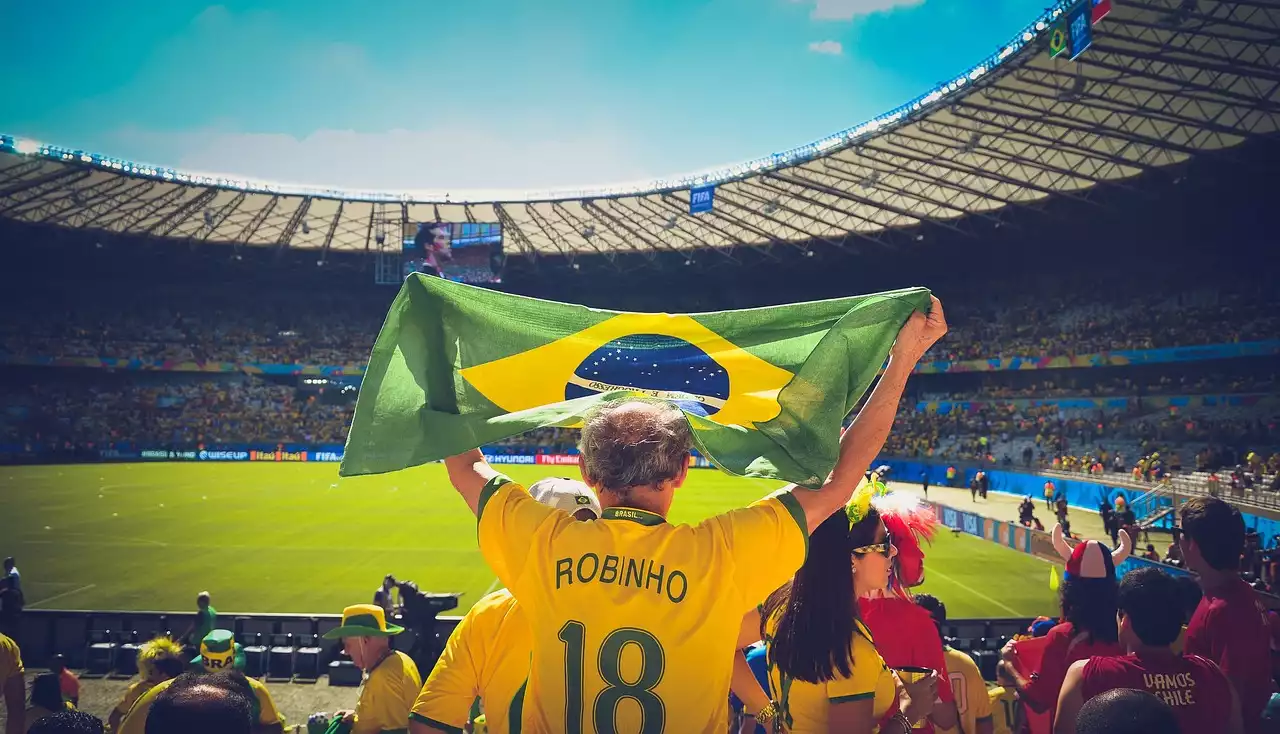African nations' performance in Olympic football
African nations have consistently performed well in Olympic football, with several notable achievements to their name. Countries like Nigeria, Cameroon, and Senegal have showcased their talent and potential on the world stage. Nigeria, in particular, has a strong history of success in Olympic football, with their U-23 team winning gold at the 1996 Atlanta Games. This victory marked the first time an African nation won the gold medal in football at the Olympics. Cameroon and Senegal have also had their fair share of success, with both teams reaching the quarterfinals in previous editions of the tournament. These performances highlight the growing influence of African nations in Olympic football and serve as a testament to their skill and determination.
The success of African nations in Olympic football can be attributed to several factors. Firstly, the continent is home to a large population of young football enthusiasts, who are passionate about the game and eager to make their mark on the international stage. This pool of talent provides African nations with a competitive advantage, as they have a wealth of young players to choose from. Additionally, African players are known for their natural athleticism and technical skills, which make them well-suited to the fast-paced nature of Olympic football. These factors, combined with the rich footballing culture and infrastructure in African countries, create the perfect breeding ground for future football stars.
Nigeria: A powerhouse in African football
When it comes to African football, Nigeria is a force to be reckoned with. The country has a long-standing tradition of producing top-class players who have gone on to achieve great success both domestically and internationally. Nigerian players are known for their speed, strength, and technical ability, making them a formidable presence on the football field. This talent pool has translated into success at the Olympic Games, with Nigeria's U-23 team winning the gold medal in 1996 and reaching the final in 2008. The Nigerian Football Federation has also invested heavily in youth development programs, ensuring a steady stream of talented players for the future.
One of the key factors behind Nigeria's dominance in African football is the country's passion for the sport. Football is deeply ingrained in Nigerian culture, with children playing the game from a young age, often in makeshift pitches on the streets. This love for football creates a strong foundation for the development of young players and fuels their ambition to succeed. Furthermore, Nigeria's football infrastructure has undergone significant improvements in recent years, with the establishment of academies and training centers to nurture young talent. These investments have paid off, as Nigeria continues to produce top-quality players who go on to represent the country at the highest level.
Senegal: Rising stars in African football
In recent years, Senegal has emerged as one of the rising stars in African football. The country's national team, known as the Lions of Teranga, has consistently performed well in international competitions, including the Olympic Games. Senegal's U-23 team made history in 2012 by reaching the quarterfinals of the tournament, and they have since continued to impress with their skill and determination. The success of Senegalese football can be attributed to the country's footballing culture, which places a strong emphasis on youth development and grassroots football. The Senegalese Football Federation has implemented various initiatives to identify and nurture young talent, ensuring a steady supply of skilled players for the national team.
Senegal is also known for its strong football infrastructure, with academies and training centers spread across the country. These facilities provide young players with access to quality coaching and training, helping them develop their skills and reach their full potential. Additionally, Senegal's players possess a unique blend of technical ability, physicality, and tactical awareness, which sets them apart on the international stage. With a growing pool of talented players and a commitment to youth development, Senegal is well-positioned to make a significant impact in future Olympic Games.
Cameroon: Historic success and future prospects
Cameroon is another African nation that has enjoyed historic success in Olympic football. The country's U-23 team won the gold medal at the 2000 Sydney Games, becoming the second African nation to achieve this feat. This victory showcased Cameroon's ability to compete at the highest level and cemented their status as one of Africa's football powerhouses. Over the years, Cameroon has produced several talented players who have gone on to have successful careers both domestically and internationally. The country's footballing success can be attributed to a combination of natural talent, strong football culture, and a commitment to youth development.
Cameroon has a rich footballing history, with a national team that has consistently performed well in international competitions. The country's football infrastructure has also undergone significant improvements, with investments in academies and training centers to nurture young talent. These facilities provide aspiring footballers with the opportunity to develop their skills under the guidance of experienced coaches. Furthermore, Cameroon's players possess a unique blend of physicality, skill, and tactical awareness, which makes them a formidable presence on the football field. With a strong foundation and a wealth of talented players, Cameroon is well-equipped to dominate future Olympic football tournaments.
Challenges and obstacles faced by African nations in Olympic football
While African nations have shown great potential in Olympic football, they also face several challenges and obstacles that hinder their progress. One of the main challenges is the lack of financial resources and infrastructure compared to more developed footballing nations. African countries often struggle to provide adequate training facilities, coaching, and support for their players, which puts them at a disadvantage against their wealthier counterparts. Additionally, the limited exposure to international competitions and scouting networks makes it harder for African players to attract the attention of top clubs and scouts.
Another challenge faced by African nations is the issue of player eligibility. Olympic football has age restrictions, with teams limited to players under the age of 23, with a few exceptions. This rule prevents African countries from fielding their strongest teams, as many talented players reach their peak after the age limit. Additionally, the timing of the Olympic Games often clashes with domestic league schedules, making it difficult for African players to participate in the tournament without disrupting their club commitments.
Strategies for sustained dominance in Olympic football
To achieve sustained dominance in Olympic football, African nations need to invest in youth development programs and grassroots football. This includes establishing academies, training centers, and coaching programs to identify and nurture young talent from a young age. By providing aspiring footballers with the necessary resources and support, African nations can ensure a steady supply of skilled players for the national teams. Additionally, African countries should focus on strengthening their football infrastructure, including the construction of modern training facilities and the implementation of high-quality coaching programs.
Furthermore, African nations should seek to increase their participation in international competitions and friendly matches to gain exposure and experience. This will help African players showcase their skills on the global stage and attract the attention of scouts and top clubs. Collaboration with international football federations and clubs can also provide African nations with valuable resources and expertise to further develop their footballing programs.
The future of African nations in Olympic football
As the world looks to Africa for the next generation of football stars, the future of African nations in Olympic football looks promising. With their natural athleticism, technical skills, and a deep-rooted love for the sport, countries like Nigeria, Senegal, and Cameroon are well-positioned to make a significant impact at future Olympic Games. However, overcoming the challenges and obstacles they face will be crucial to realizing their full potential. By investing in youth development, strengthening football infrastructure, and increasing their participation in international competitions, African nations can pave the way for sustained dominance in Olympic football. The world should keep a close eye on these three nations, as they have the potential to take center stage in the future of Olympic football.










